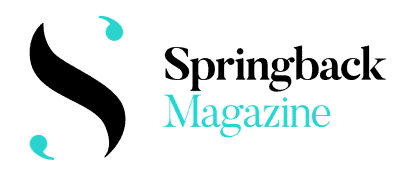Springback Academy 2023
Review

Nabinam
Jean-Baptiste Baele
Once the body of the performer Jean-Baptiste Baele started to tell the story of his life in Nabinam, I wanted to hear it all. Every word of his translates into dance. He is living evidence that the body remembers. At one point, a rapid sequence of hand movements at different heights accompanied by distorted facial expressions capture the feelings of an underestimated little boy. Born in Madagascar, then adopted and raised in Belgium, he wishes no more than to be a child.
Shortly, though, the performer gets lost in the flood of words and stories. He tries to be honest and funny, but he doesn’t make us feel the real burden he must be carrying. We don’t crave big secrets. We only want him to not stop moving. His immense physicality and expressive range – the moments when we sense his heartbeat and the blood flowing through his veins – are what makes us feel alive, too.
‘Let me draw you a picture here.’
Nabinam’s grey stage is a blank page, an arena fit for storytelling that Jean-Baptiste Baele coolly claims. I only wish this autobiographical solo was not consumed by spoken word, sparingly illustrated with motion.
These illustrations never spill into absurdity or forced entertainment. They are understated sketches: shifts and gestures to suggest the height, clothes, belongings or faces of figures who populated his childhood. Baele traces pencil lines to inject a humanity, or lack thereof, into each vignette.
It’s not always easy. Words rumble through Baele’s gut, causing violent jerks before erupting outwards. Memories fling him into repetitive actions, running back and forth, attempting unsuccessfully to jump higher and higher.
Nabinam’s final sequence, the ‘Dance’, is commanding but brief, and misses the opportunity for a much-needed change of pace. Still, the grey stage is left permanently altered – an enduring topography of past and present, revealing a clearing that leads towards the future.
‘Spoiler alert: we’re gonna talk about me,’ Jean-Baptiste Baele says at the start of Nabinam, jovially. So far, so standard: confessional works formed a solid chunk of this year’s Spring Forward offerings. Yet a moving personal story doesn’t necessarily make for striking dance, and Nabinam is a case in point.
The Norway-based Baele is a highly likeable performer, but there is little choreography to speak of in this solo. As he recounts his childhood – born in Madagascar, he was adopted by a Belgian family – he merely illustrates portions of the text. ‘Narrow-minded’ becomes a rectangle delineated in the air; the height of relatives is suggested with a raised hand, literally.
Throughout, Nabinam feels more like a standup act than a fully formed piece of dance theatre. Only the final sequence – in which Baele rewinds through his gestures, stepping up the pace – raises the bar. By then, it’s a little late.

